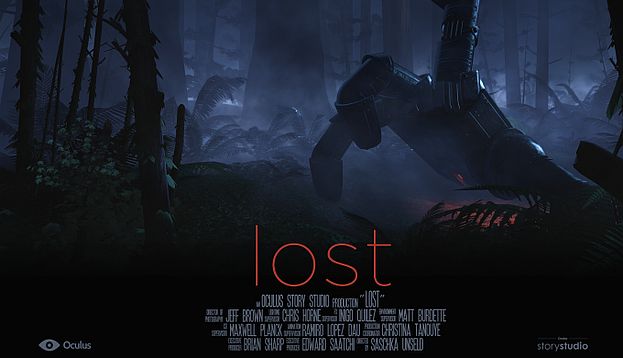With the Oculus Rift still in development and rumored to release sometime this year, many developers have already begun stepping up their efforts with games that takes advantage of the medium, engulfing would-be players into virtual worlds that provide more engagement than the usual gaming experience.
That said, filmmakers are starting to get into the medium as well. Projects have been popping up left and right as of late, including the forthcoming film Zero Point and the documentary Vice News VR: Millions March, which will make its debut at the Sundance Film Festival this week.
But that doesn’t mean that everyone is ready to embrace the new format, as there’s a certain challenge that comes with it – being able to tell enough of a story to keep players interested in coming back. Even two hour-length films could see this as a tough hump to get over, as keeping viewers glued to their headsets could prove a challenge – especially given that most of them aren’t used to seeing it in a full 360-degree perspective.
With that, a new studio called Story Studio intends to create examples that help define how cinema is supposed to work on the device, according to TechCrunch. The studio, headed up by various veterans from Pixar Animation Studios, will put together VR cinema examples, which are designed to “educate, inspire and foster community,” thus giving the filmmakers the tools needed to really embrace the format and make it their own.
“We didn’t have an answer for how to get started in VR for cinema,” said Oculus CEO Brendan Iribe, which led to the creation of the studio. “This is another example where as a smaller, independent startup it would have been hard to spin up an effort like this,” explaining how Oculus made plans with Story Studio before Facebook acquired the studio for $2 billion last year.
The studio intends to introduce its debut experience, Lost, at Sundance this week, where attendees can also sign up for access to a forthcoming Oculus Story Studio app for iOS and Android, should they have interest in the project.
The team is led by creative director Saschka Unseld, who previously worked on The Blue Umbrella for Pixar. He explained to TechCrunch, “You learn by doing. Everyone who starts a project in VR encounters the same things in the beginning. They try to figure out, ‘How do I make these things I know from film work in VR How do I do a cut in VR ‘”
General film concepts, according to Unseld, don’t quite translate as well to the Oculus, and have to find a narrative that flows smoothly within the device’s universe. He explained that the experience could vary in length, from three to ten minutes, depending on what the user looks for.
For the time being, Story Studio will stick with CG-based shorts that can educate people looking to get more out of producing work on the Oculus. This may leave a few of those preparing live-action pieces wondering when they’ll get a turn, but it could happen sometime in the future.
With a focus on both gaming and filmmaking, there’s no question that there’s room for the Oculus to make an impact. Story Studio will certainly help with that – along with Facebook’s marketing muscle, of course.

